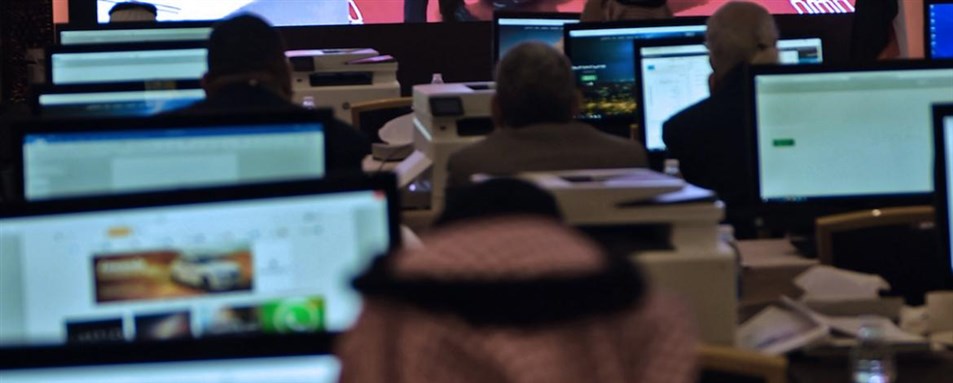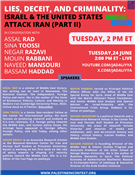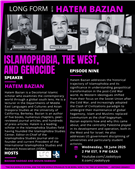[This article was originally posted by Reporters Without Borders here on 09/02/2018.]
Al-Shehi’s arrest was not official until yesterday’s announcement of his sentence, which includes a five-year ban on leaving the country on completion of the jail term. His disappearance was reported on social networks in January but he stopped writing his column in the Al-Watan newspaper in mid-December.
He accused the royal court of involvement in corruption and nepotism during an appearance on a Dubai-based Saudi TV channel on 8 December after making similar allegations in anarticle in November.
According to RSF’s information, he is one of at least 15 journalists and citizen-journalists to have been detained in a wave of arrests that began in September although none of these arrests or the existence of charges had been officially confirmed until yesterday’s announcement of Al-Shehi’s sentence.
Harassment of journalists has increased since last June. Some journalists who were abroad have preferred to stay there. Some have been forced to resign from what are regarded as “enemy” media. Others, according to our information, have chosen to censor themselves or to withdraw altogether from what was the only space left for free speech – social networks.
The information obtained by RSF from various sources indicates that these “missing” journalists are being held arbitrarily by the Saudi regime. But it is still very difficult to say exactly how many are being held because of the secrecy with which the authorities have acted and because some of the families refuse to talk for fear of reprisals.
For security reasons, RSF cannot reveal all the names it has obtained. But we can report that the victims are mainly being questioned about what they have written in the press and on social networks (Twitter and Snapchat) and about their TV appearances. The authorities reportedly accuse them of disloyalty towards current Saudi policy.
“We are concerned about this wave of secret arrests,” RSF said. “Nothing in Saudi Arabia’s geopolitical situation justifies treating either professional or non-professional journalists as dangers to state security and arresting them without clear grounds.
“We regret that, despite the openness and modernity of his discourse, Mohammad bin Salman’s appointment as Crown Prince last June has led to the additional persecution of journalists. We all for the immediate release of all these journalists, who are being held arbitrarily.”
Wave of arrests
Those detained include Essam Al Zamil, an economist and businessman who is well known as a citizen-journalist on social networks. He was reportedly arrested in September on his return from an official visit to the United States with a Saudi delegation.
According to the information obtained by RSF, he is being held in the eastern city of Dammam and has been interrogated about tweetssince 2011, in particular, his tweets about the future sale of the Saudi company Aramco, which he has opposed. He has reportedly been charge with incitement against the state and inciting sedition in these tweets.
Those detained also include Jamal Farsi – a citizen-journalist and journalist with several Saudi media outlets as well as a liberal, pro-reform businessman – who was reportedly also arrested in September. According to some sources, it was his tweets and videos cautioning against VAT and the sale of state companies that got him into trouble.
Mustafa Al-Hassan, a blogger who is well known on Twitter and as the founder of a pan-Gulf forum that encourages civil society development, went “missing” in September. He is also a journalist with the daily Sahifat al YoumSahifat al Youm, and a university academic and researcher.Two years ago, he began writing about literature and taking less interest in politics because of the political climate and health problems.
A satirical and critical blogger known by the blog name of Al Banakhihas reportedly been detained since December.
Repressive arsenal reinforced
Imprisoning journalists is not new in Saudi Arabia. At least three journalists and seven citizen-journalists are currently serving jail sentences in connecting with their reporting. Turad Al Amri, a famous journalist and commentator, is said to have been arrested in November 2016 although the authorities have never confirmed this.
Harassment of journalists has increased since last June. Some journalists who were abroad have preferred to stay there. Some have been forced to resign from what are regarded as “enemy” media. Others, according to our information, have chosen to censor themselves or to withdraw altogether from what was the only space left for free speech – social networks.
Many journalists and citizen-journalists have been the targets of campaigns of insults and intimidation on Twitter, carried out at the behest of the crown prince’s advisers. The deployment of these troll armies recalls the operations by “King Salman’s electronic army” in 2015 and 2016.
In December 2017, the Saudi media were urged to display more patriotism, although the regime has tolerated no media freedom for years and has always taken great care of its international image. Activists and journalists can easily be prosecuted under a new terrorism law adopted in November, which has been criticized by the United Nations and international human rights NGOs.
Writing prohibitions are common. One was imposed on Ahmed Adnan, a Saudi journalist in Lebanon, at the end of last month. The journalist Jamal Al Khashoggi was banned in late 2016 and was banned again in 2017, after which he opted for self-imposed exile in the United States.
Saudi Arabia is ranked 168th out of 180 countries in RSF's 2017 World Press Freedom Index.


















